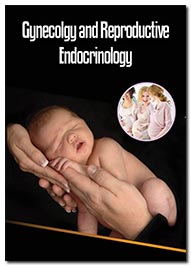- Journal H-index : 2
- Average acceptance to publication time (5-7 days)
- Average article processing time (30-45 days)
About The Journal
ISSN: 2591-7994

Gynecology and Reproductive Endocrinology is an Open access Bi-monthly journal publishing peer-reviewed articles on all aspects of basic and clinical research in Gynecology with emphasis on Feto-Maternal Medicine, infertility, reproductive system disease and sexual dysfunction obstetrics and reproductive Endocrinology.
The journal does not collect subscription charges from readers and they can freely view or access articles immediately after the publication under open access licensing terms. The published articles are covered by the indexing and abstracting databases: Google Scholar, Publons.
The journal accepts Original Research papers, Review articles, Case reports, Short note communications, Editorials, Mini review, Commentary and Perspectives in Endometriosis, Sexual dysfunction, Family planning, Feto-Maternal medicine, Reproduction, Contraception, Adolescent gynecology and Fertilisation.
Every manuscript that is submitted is subjected to a preliminary quality control check by the editorial office, which is followed by an external peer review procedure. The submitted manuscripts undergo single-blind peer review. Independent experts in the same field of study are in charge of critically reviewing, assessing, and providing feedback to the authors in order to help them better their work.
Time to publication from acceptance 5-10 days.
Average turnaround time 30-45 days.
Submit manuscript online at: Editorial Tracking system (or) via e-mail attachment to the Editorial Office: gynecendocrinol@theresearchpub.com
The article editorial processing stage can be tracked online by the corresponding author from the time of article submission to its acceptance. If interested in serving as the Editorial Board member, please contact gynecology@longdomjournal.org
LINK: https://www.alliedacademies.org/gynecology-reproductive-endocrinology/
Editorial – Gynecology and Reproductive Endocrinology (2018) Volume 2, Issue 1
A look through time
Writing an editorial is not an easy task, implies first of all great respect and responsibility, since it will be scrutinized by many people with more qualities and talent than this daring doctor. Trying to give light to medical experts in endocrinological gynecology and reproduction medicine is a challenge and a dare, a great adventure and a great honor granted. Medicine as an inexact science and art that is acquired over the years has undergone surprising changes; every day full-time researchers are not able to keep pace with new publications. Looking back after several decades and see with critical eyes our work, awakens awareness and the need to work as a team and share experiences that help improve the quality of life of all of us. Since 40 years ago as a gynecobstetra physician. I have been a privileged witness of the vertiginous advances of biological sciences in general and of the endocrinology of particular reproductive medicine. Before the appearance of radio-immunoanalysis, the study of hormones was not only complicated but also borrowing, with requirements of exaggerated plasmatic blood volumes impeded in the day of today. However, even the path of the ovum funded inside the tube, from its distal end to the implementation in the uterine cavity, is a way full of challenges, mysterious and silent for embryos development. ?Cute Challenge? On the way to the interior of the tuba of a fertilized egg and of a potential new human being, which becomes a single cell with all the genetic information in its interior, that is to say totipotential and reach the uterine cavity to implant itself and develop all its organogenesis, called the embryonic period, which most impressive wisdom of the Greeks who called this new human being embryo that according to the etymology of the word means «metamorphosis» (from zygote to end as embryo and then fetus), It is also necessary to say that the etymology of the word fetus in Latin means «descendant». This trip is like an interstellar expedition into the galaxy, so we have much to learn from the interaction of the fertilized egg with the walls of the trunk, the exchange of chemical language that occurs there. Maybe it is the key to improving the efficiency and effectiveness of reproductive medicine in the early stages that we have all traveled. The advances in the epigenetics, genetics and diagnostic methodology where we have disclosed the genome and part of the human proteome, the vertiginous changes and exponential of knowledge raise us a future splendor, but where the framework ethic of the studies that should be clear and accurate. We could have the temptation of production of human beings of different categories, returning to the desire of some of higher race. ?Look like an apocalyptic vision?. However we believe that researcher and healthcare provider have the wisdom necessary for the best way to do science. Gynecological endocrinology has been generous in the production of valuable information necessary to improve the quality of life of the inhabitants of our planet without exception. We also have a long and auspicious world to walk together and this journal should continue being and maintaining as a means of dissemination of quality contributing to the cultural acerbo of science. Author(s): Guzmán E.